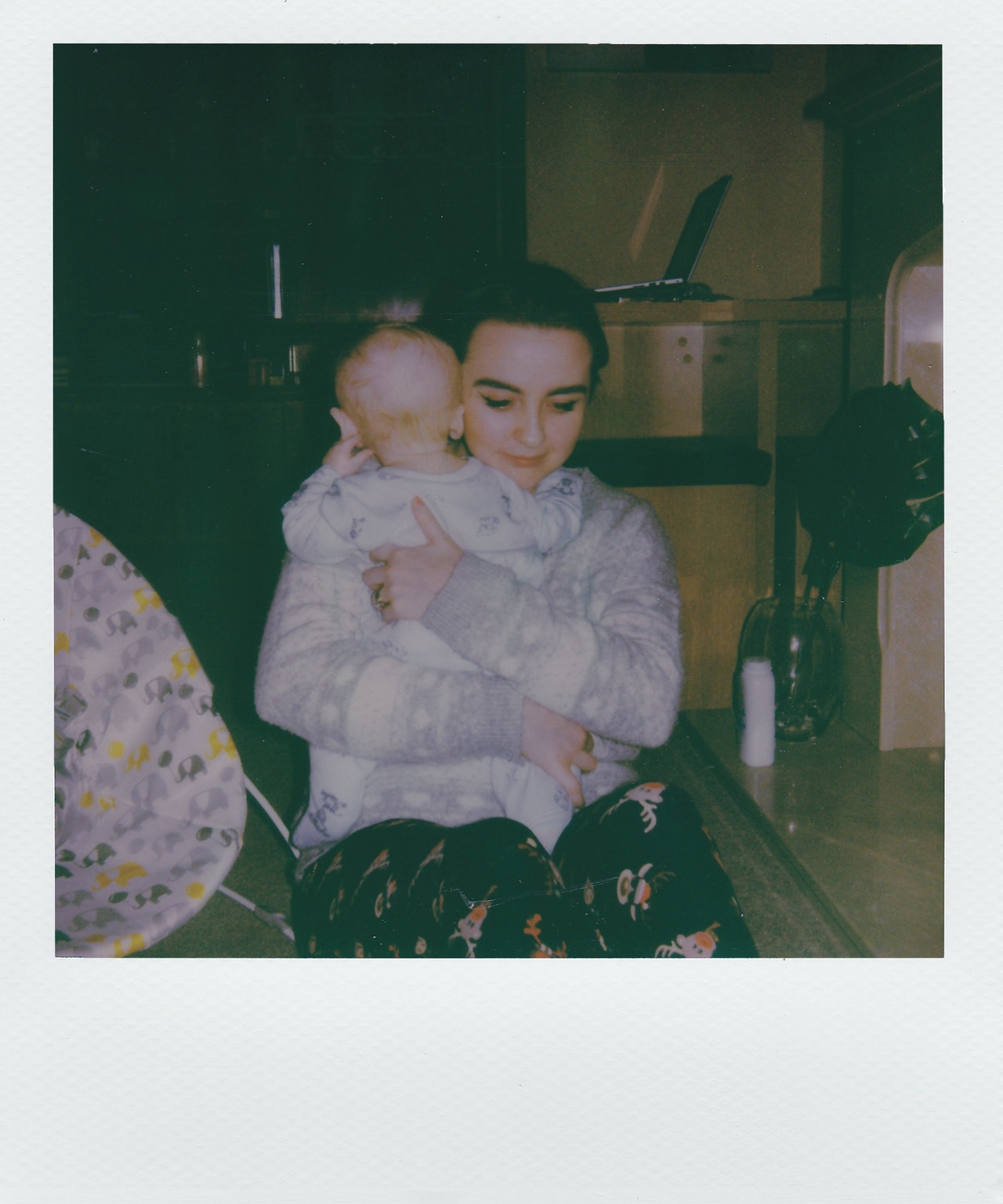The rain is beating down on my car window as I wait for my sons to leave school.
I have a meeting in half an hour, but my maternal instinct overrode my common sense and I decided to pick my teenage boys up instead of making them walk home in the rain.
Neither had the sense to pack a coat—despite it being greyer than an elephant’s arse when we left this morning and despite my recommending they take a coat.
The 0.2 seconds it would have taken them to locate said coat did not take precedence over some TikTok star’s latest prank. He got the view and I got ignored. Nobody got a coat.
I am watching the clock, conscious of my own deadline; three minutes after school ends, no kids…five minutes, seven minutes, thirteen minutes…
My text messages to them go from Mary Poppins to Cruella De Ville in tone: the first a gentle reminder, the fifth a seething, “Are you taking the piss?” As my anger boils over, I see them approaching in my rearview mirror—leisurely and cheerfully.
Flanked by a gaggle of friends, they slowly reach the car doors. They enter the car mid-argument. Teenager one doesn’t even acknowledge my presence; teenager two asks me what I have planned for dinner that night. Both, completely unaware of my inner rage, my impending work commitment, or my rising blood pressure.
I want to let rip but am so angry I can’t even form a sentence. Teenager two reveals he has a food lesson tomorrow and needs a myriad of random ingredients that we don’t have, nor do I have the time to collate. Teenager one picks up his phone and starts making weekend plans—all of which involve mom’s taxi services; there is no consultation.
As I pull up to my drive, the brotherly bickering hits a crushing crescendo and my temper snaps. “Get out of the bloody car!” I scream. Dumbfounded by my outburst, both exit the vehicle and start their leisurely walk up the path into the house.
I sit in the silence, the rain still pounding down outside, and zone out. I am acutely aware that another evening of cooking, cleaning, homework battles, bickering, and bullsh*t awaits me behind the doors of my pretty little cottage. I stare at the front door from the sanctuary of my car and fantasize about just driving off—reclaiming my life. I’m pretty sure they wouldn’t even realise I was gone until their bellies started rumbling, and by then, I could be far, far away.
Instead, I just sit staring at the dial of my near-empty fuel tank, fully detached, and sob.
Parental burnout is on the rise—and it’s no surprise!
Society paints a picture of the modern parent as one who can juggle a demanding career, keep a tidy ship, and raise mindful little miniatures who want for nothing and excel in everything. In 2020, COVID-19 threw us a few more ingredients to this list of parental expectations: 24-hour isolation, months of homeschooling, and an accompanying threat of a virus, which was wiping out thousands of people a day.
We talk so often about workplace burnout, yet very little is said about parental burnout—a silent pandemic that is affecting so many of us, yet is hidden under a cloak of denial and parent shaming.
Everyone feels parental fatigue at some stage in their lives; parental burnout is not the same.
Parental burnout is not something we should normalize; it’s a real and dangerous threat and is being perpetuated by those who deem it as a normal and acceptable part of raising a child.
It is being magnified by our denial and accelerated by those who make flippant remarks such as “suck it up,” “it’s part and parcel of having a child,” and “it’s just called being a parent.
Let me be clear: parental burnout is no joke, nor is it something we should attack—it is not a sign of failure, weakness, or selfishness. It’s an exhaustion disorder caused by chronic stress and should be recognized as such.
Parental burnout pushes us into survival mode. Much like any other chronic stress condition, it comes with both mental and physical effects. Parental burnout is not a badge of honor, it is not a sign that you are a superhero, it is not a pride patch to be worn across your crumpled T-shirt. It is a chronic stress disorder that requires attention, action, and recognition.
Why do we consider someone suffering the ailments of parental burnout as justified just because they chose to have children?
We need as a society to wake the f*ck up and draw some real-world parallels into what we humans have the capacity for and what we don’t.
The World Health Organization categorizes “burnout” as a state of vital exhaustion—so why should parental burnout be cast aside as anything less?
Whilst there is an abundance of research available on burnout, particularly workplace burnout, there is a much smaller amount of information available on parental burnout. In 2015, Isabella Roskum, a Doctor of Psychological Sciences and Development Psychology at the University of Belgium joined forces with Moira Mikolajczak, also a Doctor of Psychological Sciences at the University of Belgium to focus extensive research and shine a light on this growing problem.
They founded the International Investigation of Parental Burnout (IIPB), an international research consortium on parental burnout that now brings together 45 countries. With the collaboration of their team, the consortium, and many researchers (and parents!) around the world, they have contributed to develop this field of research and published the results of their work in numerous scientific articles and four books.
The researchers suggest that parental burnout encompasses three dimensions:
1. Overwhelming exhaustion related to one’s parental role. Parents feel that being a parent requires too much involvement; they feel tired when getting up in the morning and having to face another day with their children; they feel emotionally drained by the parental role to the extent that thinking about their role as parents makes them feel they have reached the end of their tether.
2. The second dimension is an emotional distancing from their children. Exhausted parents become less and less involved in the upbringing of and relationship with their children; they do the bare minimum for their children but no more; interactions are limited to functional/instrumental aspects at the expense of emotional aspects.
3. The third dimension is a sense of ineffectiveness in the parental role. Parents feel that they cannot handle problems calmly and/or effectively.
I am a lone parent and feel an acute pressure and responsibility on my shoulders to be all things to all people in my relationship with my children. I also feel a need to overcompensate for the absent parent, alongside pressure to ensure I am working at full capacity as my wage is our family’s only source of income.
I am not unique in this situation, but that doesn’t make it any less the case. So many people in my life have tried to placate me into believing that this level of pressure is somehow of my own doing, or a symptom of my life choices, or, in some cases, something I should be ashamed to talk about because in doing so, I am being ungrateful for my children and undeserving of that. Like slut-shaming, parent shaming is also on the rise and is a contributing factor to so many suffering in silence.
Whilst parental burnout is not specific to lone or single parents, it can often be found to be more prevalent in these situations. It’s also common amongst parents who have a sick child or one with behavioural or learning challenges.
In a paper published by the above-mentioned researchers, an interesting point is made on the lack of historic concern or interest applied to parental burnout. The researchers summarise the following:
“…although humans have both parented and worked since the dawn of time, there have been thousands of publications on job burnout and less than fifty on parental burnout. One explanation for this huge asymmetry is that people in power in science (historically men) have set the agenda, and work has traditionally been the domain of men and parenting the domain of women.”
We need to refrain from seeing parental burnout as a taboo subject, one which has an underlying layer of shame and guilt attached to it, and start seeing it for what it is, helping where we can, bringing awareness where it’s absent, and understanding where we judge.
Parenting is the hardest job in the world. For every ounce of joy it brings me, it also brings me an (often equal) amount of dread and heartache. Let us open up this dialogue, get honest and real about parenting, and stop hiding behind a perfectionist’s veil—it is a damaging illusion.
Whilst Parental burnout requires many interventions, our societal conceptualisation of it being “part and parcel of parenting” is one that we can all help to overcome. This will pave the way for further awareness, further research, and support structures to be put in place.
Let’s start there.
~
Feel as if you may be in the midst of parental burnout? The IIPB website plays host to a parental burnout assessment that you can find here. It also hosts several helpful resources and support frameworks to help.
~


 Share on bsky
Share on bsky





Read 39 comments and reply